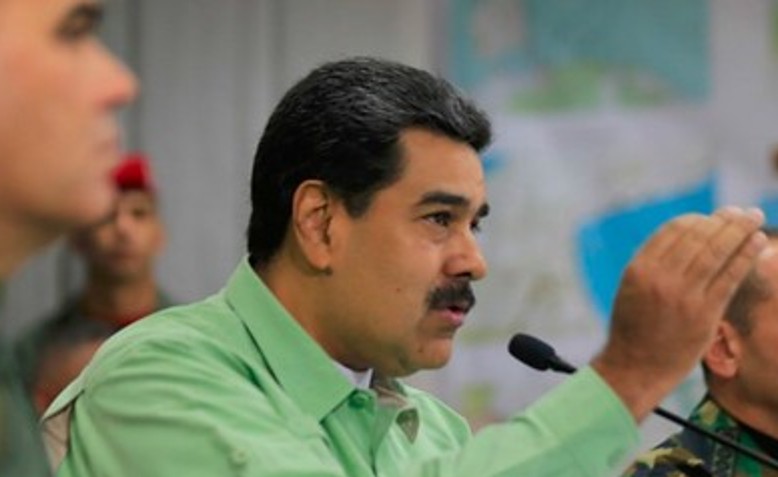 Presidente venezuelano Nicolás Maduro ordena fechamento da fronteira terrestre com o Brasil (Foto: Prensa Presidencial) | Photo: Brasil de Fato – Flickr | cropped from original | CC BY-NC-SA 2.0 | license linked at bottom of article
Presidente venezuelano Nicolás Maduro ordena fechamento da fronteira terrestre com o Brasil (Foto: Prensa Presidencial) | Photo: Brasil de Fato – Flickr | cropped from original | CC BY-NC-SA 2.0 | license linked at bottom of article
Regional elections in Venezuela have delivered a significant blow to the US, but the left must continue to oppose imperialist meddling in the region, argues Jonathan Maunders
President Maduro’s party won at least 18 state-governorships out of a possible 23 in last Sunday’s regional elections in Venezuela. This landslide victory comes despite the country’s US-backed opposition parties taking part for the first time since 2017.
After almost 4 years of boycotting multiple elections, parties opposed to Venezuela’s President, Nicolás Maduro, decided to alter their approach and contest the regional elections. However, this plan clearly backfired as they only landed 3 state-governorships, showing how little Venezuelans trust Maduro’s opponents.
The response
Predictably, the US government has tried to undermine the election result, accusing the Venezuelan government of rigging the election. In his response to the elections, US Secretary of State Antony Blinken said “the regime grossly skewed the process to determine the result of this election long before any ballots had been cast.”
In response Venezuela’s foreign affairs spokesman Felix Plasencia accused Joe Biden’s government of trying to meddle in the country’s affairs, contravening the UN charter. Indeed, the US government’s criticisms are largely discredited by facts elsewhere.
Venezuela’s US-backed opposition parties decided to stand in the regional elections when it was agreed that officials from the European Union would observe the election proceedings. The EU observers’ preliminary report into the elections notes the conditions were an improvement over previous elections in the country.
The head of the EU’s observation mission, Isabel Santos, said that while there were accusations of wrong-doing, Venezuela’s electoral authority was more balanced than it has been in two decades.
Meanwhile, other critics have noted that the election turnout was 42%, arguing that this delegitimised Maduro’s victory. It is clear that this is a low turnout, but it is also worth noting that this came in the middle of a pandemic that has ravaged Venezuela and that this figure is not dissimilar to voter turnout in UK local elections.
The low turnout also compounds the opposition’s defeat, suggesting a large amount of voter apathy that cannot just be directed at President Maduro. The reality is that, despite what is said in the US, the majority of Venezuelans simply do not trust the opposition parties.
What now?
The US government have restated their support for opposition figure Juan Guaido, despite his side’s crushing defeat. Guaido, himself, has called for calm and a period of rebuilding as Maduro’s opponents fight among themselves for answers.
The statements from the Biden administration make it clear they have no intention of halting their imperialist efforts to interfere in Venezuela and remove President Maduro. They will continue to back opposition groups and levy punitive sanctions, all aimed at overthrowing the Venezuelan government.
Sunday’s election result was a clear defeat for Venezuela’s US-backed opposition but as Biden’s administration reels, the left must continue to oppose US imperialism in the region.
Before you go
Counterfire is growing faster than ever before
We need to raise £20,000 as we are having to expand operations. We are moving to a bigger, better central office, upping our print run and distribution, buying a new printer, new computers and employing more staff.

